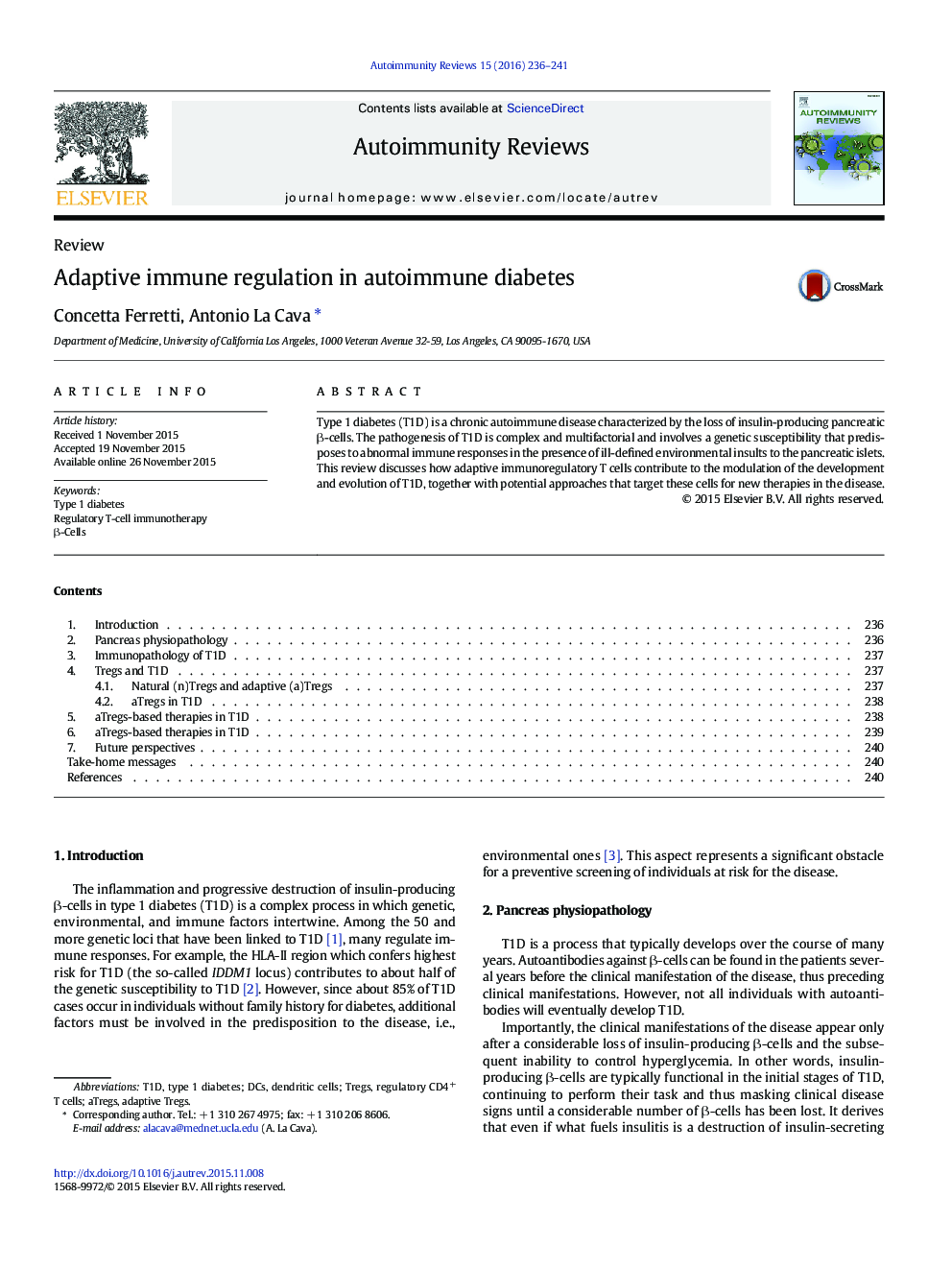| Article ID | Journal | Published Year | Pages | File Type |
|---|---|---|---|---|
| 3341314 | Autoimmunity Reviews | 2016 | 6 Pages |
•Tregs in T1D are altered, numerically and functionally.•aTregs efficiently suppress T1D autoimmunity.•aTregs can be induced both ex vivo and in vivo.•aTreg-based therapies prolong the time of β-cell demise in the disease.
Type 1 diabetes (T1D) is a chronic autoimmune disease characterized by the loss of insulin-producing pancreatic β-cells. The pathogenesis of T1D is complex and multifactorial and involves a genetic susceptibility that predisposes to abnormal immune responses in the presence of ill-defined environmental insults to the pancreatic islets. This review discusses how adaptive immunoregulatory T cells contribute to the modulation of the development and evolution of T1D, together with potential approaches that target these cells for new therapies in the disease.
